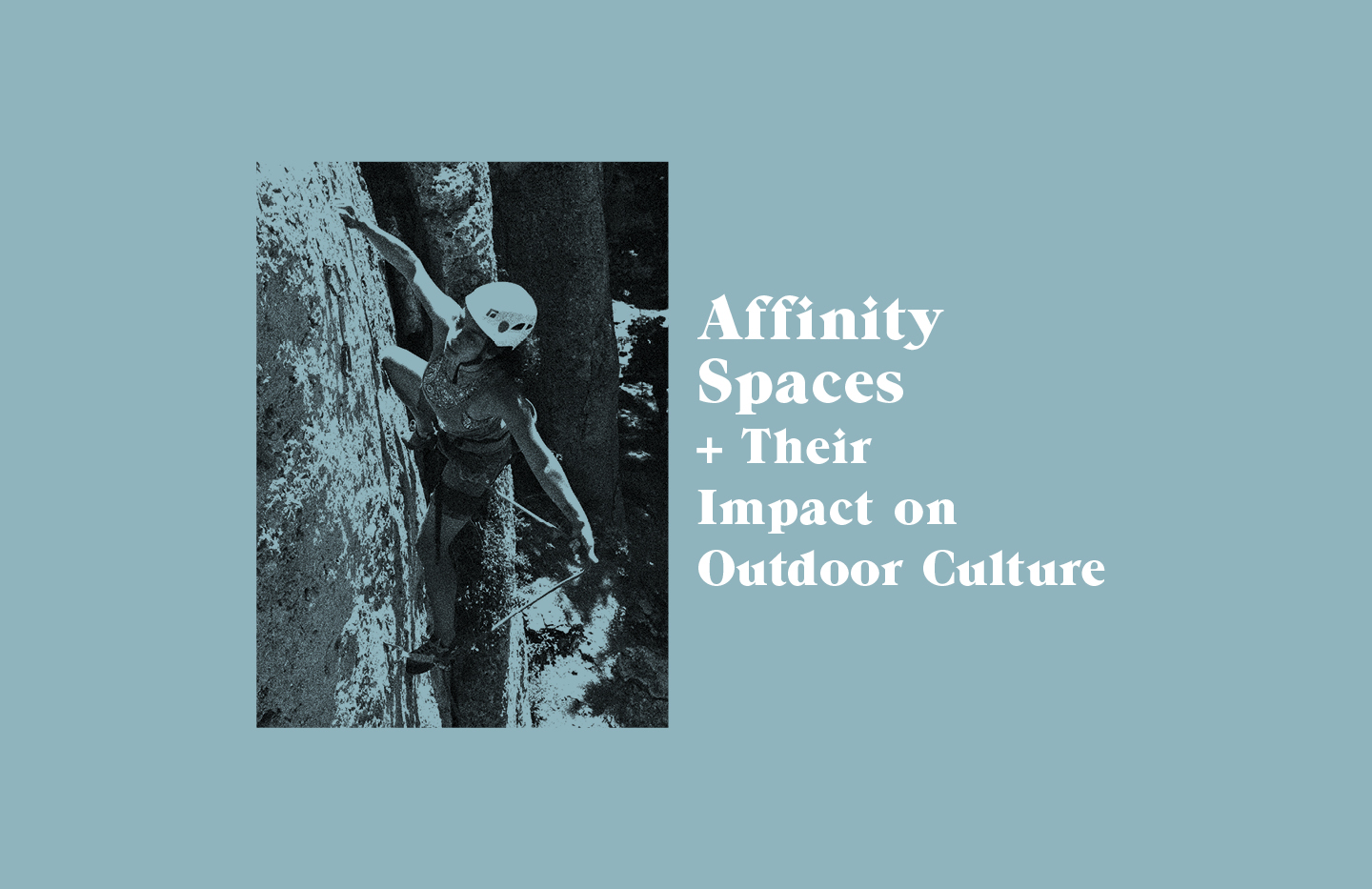“I almost left this community because I didn’t see anyone like me and felt I didn’t fit in,” says Halcy Webster, a climber and member of the leadership team at Alpenglow Collective. “We need to let everyone know they have a place in the outdoors.”
Alpenglow Collective seeks to do just that. Alpenglow is an inclusive platform where cisgender and transgender women, trans people of all genders and all gender non-conforming people can connect to find climbing partners and create lasting mentorships. Founded in 2016, Alpenglow is one of many single-identity spaces working to create room for marginalized identities in the outdoors.
A single-identity space, also known as an affinity group, is a group formed around a shared interest or common goal.
“Affinity groups are starting to carve out their own path because the outdoor industry is moving too slow,” says Grace Anderson, director of PGM ONE, a community dedicated to supporting people of color in the outdoor and environmental realms. “As more groups start to take space, rather than asking for it, waiting for it to be created or become tokenized [by the outdoor industry], bigger organizations and companies are noticing these people are out here and realizing they have a voice and a place in the outdoors.”
While the long-term impact of today’s single-identity spaces on outdoor culture is yet to be seen, affinity groups are pushing the broader dialogue about who is in the outdoors and who “deserves” to be there. They’re raising awareness of marginalized identities in the outdoors and also leading the discussion about diversity, signaling a long-term commitment toward a more inclusive and equitable outdoor culture.
“The [outdoor] community was already somewhat aware of inclusion for cis women, but trans people were not even on the radar,” Webster says. “People are becoming more aware of the existence of trans people, though still not sure how to create the needed inclusion.”
Education on the barriers faced by marginalized identities is an important first step to instigate change. But Webster, Anderson and other affinity group leaders agree the outdoor industry has barely scratched the surface with efforts for diversity, equity and inclusion.
As the outdoor industry and culture struggles to diversify, affinity groups may provide an answer to longstanding questions about inclusion and social responsibility.
“Diversity is not necessarily the pinnacle of success,” says Ava Holliday, founding partner at the Avarna Group, a DEI consulting firm working with the outdoor industry and environmental organizations. “It can be an indicator, but it is not the only one. In homogeneous spaces, we have to ask who has access and how we can dismantle barriers for those who don’t. That’s what compels us to engage in equity efforts. That’s why affinity groups are equity efforts because they create room for people who previously have not been included.”
As affinity groups and the range of identities they serve grow, they’re forming natural partnerships with one another.
“What makes the affinity group movement strong is when we stand side-by-side and have each others’ backs,” Webster says.
For example, Alpenglow and Brown Girls Climb have a membership overlap and often come together to support one another in their respective spaces.
“The founders at Alpenglow are white, so we don’t have the correct experience to lead the charge against racism in climbing,” Webster says. “We definitely try to implement anti-racist practices and support Brown Girls Climb, but we want to be careful to not speak over people the world needs to listen to. Similarly, we have some special insight on gender issues that many other groups don’t.”
“At Brown Girls Climb, we acknowledge we can’t speak for everyone—and we don’t attempt to,” says Bethany Lebewitz, the organization’s founder. “What we can do is create spaces for others to lead. We want to highlight the entire spectrum of women of color and the intersections we often carry within this identity. Through partnerships with organizations like Alpenglow, we can progress in creating sustainable efforts for spaces that shift the culture of the outdoors and ignite an intimate and safe relationship with the outdoors we all love.”
The rise of affinity groups ultimately signals a shift in the outdoor industry and culture, as marginalized identities claim their own space in the outdoors and drive progress on their own terms.
“At the heart of all these grassroots groups that have sprung up over the last two years is [this idea] that these identities were being left out, tokenized or their stories were being told from other people’s perspectives and not their own,” Anderson says. “The affinity groups will only create more intersections of inclusion.”
This story first appeared in RANGE Magazine Issue 10, which is dedicated to the idea of progress. Get your hands on a copy HERE.
XX Jill Sanford
